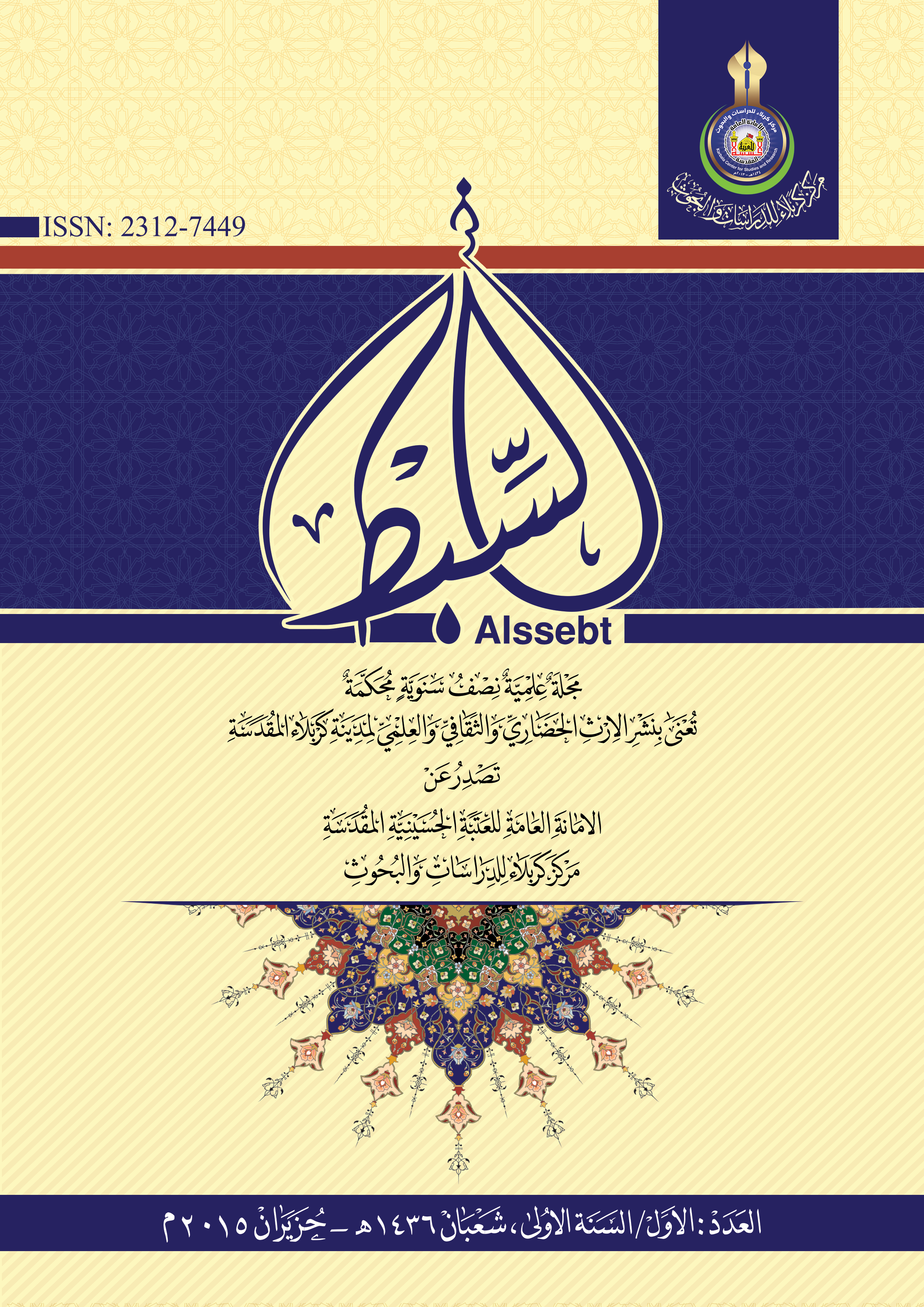Abstract
Many opinions and theories have been adopted by Arab Muslim historians and linguists to define the meaning and derivation of the name (Karbala), as well as the location of city. However, it is something usual in the history of names.
Regarding the name, the old Arab Muslim writers favoured that the name had been derived from the linguistic meaning of the word (Karbola) which meant (loosness of feet), referring to the softness of the land. Or the name was derived from the word (korbal), represented land purified from gravel and herbicide.
In another linguistic opinions the name had been derived from (Al-Korbal), which was a name of a kind of plant grown widely in that region. Imam Al-Hussain(peace be upon him) described Karbala, after knowing the name of the place, as a land of (Korb) which means anguish and (bola) means plague.
On the other side there are other many modern researchers` opinions in the formulation of the name of Karbala and meaning. These researcher believe that the name has some foreign origins. Some say that the word Karbala came from the two words (Kor babil) which refered to a group of Babylonian villages, or from (arb) and (el or ela) which meant the campus of god or sacredness in Aramic language. Other opinion says that the name Karbala came from assyrian word (Kar blato) which meant ahead dress, or Persian (Kar bald) referring to sublime work or heavenly works like worship and prayer. Finally, it could be derived from (Korbola), uttered with magnified "el", a location in the southeast of present Karbala.
It is worth mentioning, that is the martyrdom of Imam Al-Hussain (peace upon him) added other name to the place, which in our opinion were of spatial feature. While some other researchers, mistakenly, attributed many names to the place, which in fact they were name of villages in the Karbala neighborhood. Moreover, they gathered other names that connected with their faithful and spiritual emotions.
In Islamic era, the site of Karbala was closer to agreement among old historians, geographers and researcher, who came after. They all agreed that it was located to the west of Euphrates along the city of (Kasar Ibn Hubaira) from Swad-Al-Kufa in wild part southwest of Baghdad, part of Nineveh kora.
The location of Karbala between two civilized cities, since ages before Islam, Al-Hira from south and Al-Anbar from north, with the political and administrative roles of those cities overshadowed the city of Karbala. However, Karbala was in contact with thoes cities, concerning the residence of tribes and agricultural production.
Karbala was one of the significant villages of Tossoge-Al-Nahrin on the banks of (Balacobas) river, the old Euphrates. Because of that privacy, successive folks inhabited the erea before Christian era.
Those folks practiced agriculture while the establishing of the city bagan in Islamic era.
The place in which Karbala was located did not include Karbala only but many other famous villages, like Al-taaf, Al-Akir, Al-Khadiriya, shafiya, Nineveh and Al-Nawaeh and other appurtenances, which all end in Tossoge-Al-Nahrin.
Yakot Al-Hamawy mentioned that Karbala as a part of (Kora) meant a group of villages in Babylon called (Nineveh) and it was a part of Al-Kufa. Then, the efforts of Al-Hamawy in checking and defining the name of Karbala and its location by old civilized land marks added clearer, wider and older indications to the efforts of the historians and geographers pre ceeded him.

